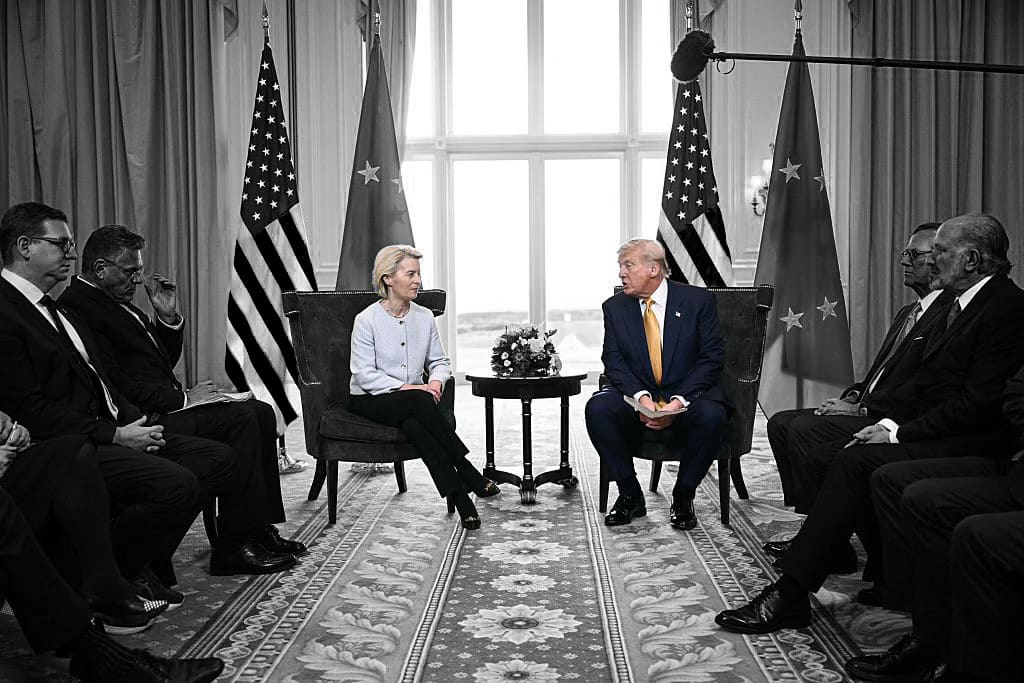U.K. leader asks European Union for 3 month Brexit delay
London - Prime Minister Theresa May formally asked the European Union on Wednesday to postpone Britain's departure from the bloc - due in nine days - until June 30. But a frustrated EU has warned it could keep Britain waiting for an answer.
In a letter to European Council President Donald Tusk, May said the Brexit process "clearly will not be completed before 29 March, 2019" - the date fixed in law two years ago for Britain's departure.
She asked for a delay until June 30, and said she wanted to set out her reasons to EU leaders at a summit in Brussels on Thursday.
U.K. Parliament in turmoil
Opposition politicians, and pro-EU members of May's Conservative government, had urged a longer extension, saying a delay of just a few months could leave Britain once again facing a cliff-edge "no-deal" Brexit this summer. Withdrawing without a deal could mean huge disruption for businesses and people in the U.K. and the 27 remaining EU countries.
But a long extension would infuriate the pro-Brexit wing of May's divided party, and would require Britain to participate in May 23-26 elections for the European Parliament.
May said that would be unacceptable.
"As prime minister I am not prepared to delay Brexit any further than June 30," she said in the House of Commons.
May said a longer delay would result in Parliament spending "endless hours contemplating its navel on Brexit."
Britain voted in June 2016 to quit the EU, but almost three years later, its politicians are deadlocked over how - and even whether - to leave.
"Today marks 1,000 days since the referendum and this government has led the country and themselves into crisis, chaos and division," said opposition Labour Party leader Jeremy Corbyn.
Conservative Eurosceptic lawmaker, Peter Bone, told Prime Minister Theresa May on Wednesday that she would betray the British people if she pursued a delay to Brexit, calling on her to change tack.
"Prime minister, if you continue to apply for an extension to Article 50, you will be betraying the British people. If you don't, you will be honouring their instruction," he said in parliament. "Prime minister, it is entirely down to you. History will judge you at this moment. Prime minister, which is it to be?"
British lawmakers have twice rejected the Brexit deal May has struck with the bloc. Her troubles deepened when the speaker of the House of Commons ruled earlier this week that she can't ask Parliament to vote on the deal again unless it is substantially changed. That scuttled May's plan to try a third time this week to get the agreement approved.
May told Tusk that despite the ruling "it remains my intention to bring the deal back to the House."
If it is approved, she plans to use the extension until June 30 in order for Parliament to pass the necessary legislation for Britain's departure.
A delay to Britain's withdrawal requires the approval of all 27 remaining EU countries - and that's not guaranteed. Any delay that required Britain to take part in European parliamentary elections would be a major headache for the bloc, and some EU leaders want a short extension to end by May 23, when voting begins.
The head of the bloc's executive branch said EU leaders are unlikely to agree to a delay at a summit this week.
EU losing patience with U.K.
European Commission President Jean-Claude Juncker said if May wanted a delay, "she must bring approval of the negotiated deal and she must bring clear ideas on timing."
"My impression is ... that this week at the European Council there will be no decision, but that we will probably have to meet again next week, because Mrs. May doesn't have agreement to anything, either in her Cabinet or in Parliament," Juncker told Germany's Deutschlandfunk radio.
"As long as we don't know what Britain could say yes to, we can't reach a decision."
Britain's political chaos has drawn reactions ranging from sympathy to scorn at home and around the world. On its front page Wednesday, the Brexit-backing Daily Mail newspaper bemoaned the time since the referendum as "1,000 lost days."
The gridlock is also causing increasing exasperation among EU leaders.
Juncker said that "in all probability" Britain won't leave on March 29, but he underlined the EU's insistence that it will not reopen the painstakingly negotiated withdrawal agreement that British lawmakers have snubbed.
"There will be no renegotiations, no new negotiations and no additional assurances on top of the additional assurances we have already given," he said.
Juncker said Britain's Parliament needed to decide whether it would approve the deal that is on the table.
"If that doesn't happen, and if Great Britain does not leave at the end of March, then we are, I am sorry to say, in the hands of God," he said. "And I think even God sometimes reaches a limit to his patience."



